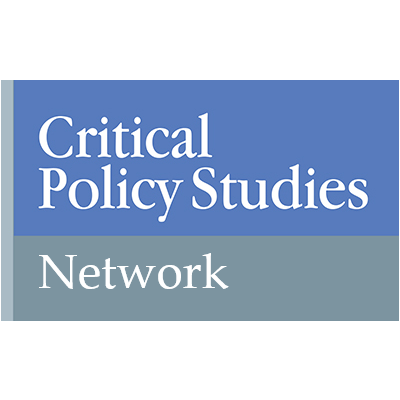Thank you for your message. The IPPA team will get back to you shortly. You first need to login here.

Critical Policy Studies Network
The Critical Policy Studies Network offers a venue for scholars, junior as well as senior, to develop and share their work with other policy scholars both inside and outside the evolving critical/interpretive paradigm. Important Links: YouTube: https://www.youtube.com/@CriticalPolicyStudiesNetwork Link to Main Website of Critical Policy Studies Network: https://spp.cmu.ac.th/critical-thinking-in-policy-studies/
About the Network
The Critical Policy Studies Network offers a venue for scholars, junior as well as senior, to develop and share their work with other policy scholars both inside and outside the evolving critical/interpretive paradigm. The Critical Policy Studies journal is the central arena for this collective engagement, and this Network can play a supporting role by engaging in additional policy studies activities to enhance theory and practice. Possibilities include conferences, workshops, literature, zoom lectures, courses, support for junior scholars, and whatever else. The Network collaborates closely with the Interpretative Policy Analysis group and with the Critical Policy Studies APSA-related group. The format of this forum eventually will be interactive, enabling virtual meetings as well as static web pages that offer essays, commentaries and teaching related material.
The journal Critical Policy Studies brings contemporary theoretical and methodological discussions, both normative and empirical, to bear on the understanding and analysis of public policy, at local, national and global levels. Like the journal, the network offers a unique forum for researchers, policy-makers and practitioners to challenge established accounts of policy-analytic methods, to explore alternative approaches to policy-making, and to promote democratic governance. To this end, it concentrates on the relation of political and policy theory to specific practices of governance, in particular as they pertain to democratic governance, participatory practices, social justice, and general public welfare. Without neglecting empirical research, the network thus abjures scientism while paying epistemological attention to interpretive, argumentative, and discursive approaches to policy-making.
Editorial Board
Editors:
Piyapong Boossabong, Chiang Mai University, Thailand
Rosana de Freitas Boullosa, University of Brasília, Brazil
Regine Paul, University of Bergen, Norway
Honorary Editor:
Frank Fischer, Rutgers University, USA, Emeritus
Forum Editor:
Dieter Plehwe, WZB Berlin Social Science Centre, Germany
Reviews Editors:
David Olanya, Gulu University, Uganda
Stephanie Paterson, Concordia University, Canada
Editorial Board:
Rebecca Abers, University of Brasília, Brazil
Leonardo Avritzer, Federal University of Minas Gerais, Brazil
John Boswell, University of Southampton, UK
Jennifer Dodge, University at Albany-SUNY, USA
John Dryzek, University of Canberra, Australia
Anna Durnová, Vienna Institute for Advanced Studies, Austria
Laureen Elgert, Worcester Polytechnic Institute, USA
Selen Ercan, University of Canberra, Australia
Susan Fainstein, Harvard University Graduate School of Design, USA
Peter Feindt, Humboldt University, Germany
Steven Griggs, De Montfort University, UK
Maarten Hajer, University of Utrecht, The Netherlands
Bob Jessop, Lancaster University, UK
Eva Lövbrand, Linköping University, Sweden
Samantha Majic, City University of New York, USA
Navdeep Mathur, Azim Premji University, India
Tamara, Metze, Wageningen University, The Netherlands
Hugh Miller, Florida Atlantic University, USA
Erhan Özşeker, Kirklareli University, Turkey
Katharina T. Paul, University of Vienna, Austria
Regina Queiroz, Universidade Lusófona, Portugal
Vivien A. Schmidt, Boston University, USA
Tracy Smith-Carrier, Royal Roads University, Canada
Holger Strassheim, Humboldt University, Germany
Paul Stubbs, Institute of Economics, Zagreb, Croatia
Helen Sullivan, Australian National University, Australia
Douglas Torgerson, Trent University, Canada
Imrat Verhoeven, University of Amsterdam, The Netherlands
Séverine van Bommel, University of Queensland, Australia
Philippe Zittoun, University of Lyon, France




